Colorado Deer hunting
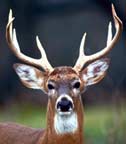
White-Tailed Deer
Reddish-brown to blue-gray or tan coloring; underside of tail is white, producing a "flag" when raised off the rump. Antlers on male primarily consist of main beam with tines growing from it. Maximum antler size occurs between 5–7 years of age.
Habitat and Habits
Range movements limited to one to three miles, depending on sex, age, and habitat. Herbivore. Lives up to 10 years. Male is polygamous with most whitetails in North America rutting in November. One to two spotted fawns typical.
- Male White-Tailed Deer
- Female White-Tailed Deer
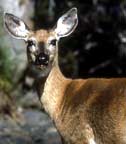 Fawns
Fawns
- Short, square bodies (look like a "briefcase" from a distance)
- Short necks and less muscle development
- Rarely have swaying backs or sagging bellies
- Ears appear large in comparison to head
Adults
- Larger, rectangular-shaped bodies (look like a "suitcase" from a distance)
- Long necks
How To Identify Buck Fawns*
- Presence of developing antlers
- Head appears more flat and less rounded between ears
How To Identify Doe Fawns*
- No developing antlers
- Head appears slightly rounded between ears
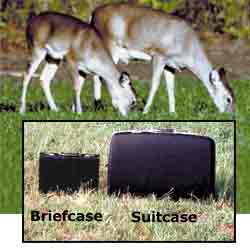 Mule Deer
Mule Deer
Reddish coloring in summer and blue-gray in winter. Cream-colored rump patch with black-tipped cream tail. Ears are larger than the white-tailed deer. Antlers branch equally.
Lives in forests, desert shrubs, thickets of shrubs, or trees; grasslands; plains, foothills; and river bottoms. Herbivore. Lives up to 16 years. Male is polygamous; rut runs Oct. - Dec. One to two spotted fawns typical.
- Male Mule Deer
- Female Mule Deer
Antlers vs. Horns
Members of the deer family (which includes caribou, deer, elk, and moose) have antlers. Antlers are solid bone and are shed annually. They are one of the fastest growing natural materials in the world. Antlers grow from the tip while horns grow from the base. Except for caribou, only male deer have antlers.
Horns are found on bison, sheep, goats, and pronghorns. Unlike antlers, true horns are hollow and grow continuously. If broken, they do not grow back. They consist of a keratin sheath surrounding a core of bone. Female sheep have half-moon horns while rams have horns that are longer and heavier and curve around the sides of their heads. Female mountain goats have horns that are longer, straighter, and thinner than Billy goats. The horn sheath of a pronghorn has characteristics of both antlers and bones because it's made of keratin surrounding the bony core yet is shed annually.
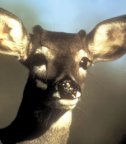
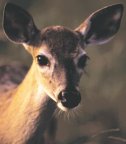
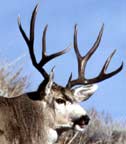
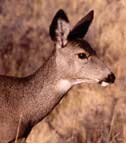
You might also like
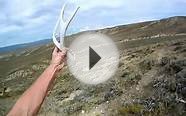
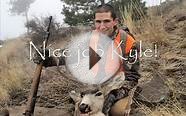
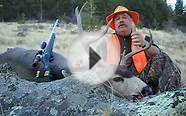

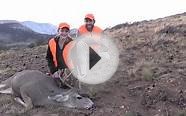
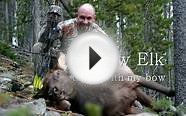





 The Antlers Hotel is a hotel and resort built in 1901 by the Austin and Northwestern Railroad on the Colorado River in Kingsland in Llano County in Central Texas. After a brief heyday, The Antlers closed in 1923 and fell into disrepair. It was eventually resurrected by a couple from Austin, Texas, and reopened in 1996.
The Antlers Hotel is a hotel and resort built in 1901 by the Austin and Northwestern Railroad on the Colorado River in Kingsland in Llano County in Central Texas. After a brief heyday, The Antlers closed in 1923 and fell into disrepair. It was eventually resurrected by a couple from Austin, Texas, and reopened in 1996.